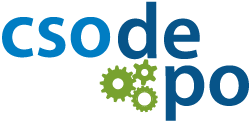Launch of the HELP course on Access to Justice for Women

The Council of Europe HELP Programme continues its support for the Armenian Academy of Justice by increasing the knowledge and skills of judges, prosecutors and investigators on the European Convention on Human Rights (ECHR) and the case-law of the European Court of Human Rights (ECtHR).
The Armenian version of the HELP online course on “Access to justice for women” was launched on 23 February 2022 for a mixed group of 22 judges, prosecutors and investigators in cooperation with the Armenian Academy of Justice. As described below, while the course had been developed with EU funding, it is launched in 2022 thanks to UK support.
The launching event was opened by Martina Schmidt, Head of the Council of Europe Field Office in Yerevan. Tamara Barbakadze, National Programme Manager, provided an analysis of the national context and presented the results of the CoE project “Support to the judicial reform – enhancing the independence and professionalism of the judiciary in Armenia”, including the recent report Gender Equality in the Judiciary of Armenia: Challenges and Opportunities.
Victor Clark, Deputy Head of Mission, United Kingdom Embassy in Yerevan, provided an opening address highlighting the primary role of the Council of Europe regarding standards on human rights and rule of law and UK’s continuing support on access to justice issues. Frank Hess, Head of Cooperation, EU Delegation to Armenia, drew attention to the importance in ensuring access to justice in general in Armenia and in particular for women and referred to EU ongoing justice cooperation efforts in Armenia and capacity building initiatives to strengthen access to justice guarantees. Sergey Arakelyan, Rector, Armenian Academy of Justice, welcomed the participants on behalf of the Academy and highlighted the inclusion of HELP courses into the Academy’s curriculum. Eva Pastrana, Head of Judicial and Human Rights Training Division, welcomed the participants on behalf of the HELP Programme.
The CoE representatives informed the participants about the thematic work conducted in the area: Douglas Maxwell, Project Manager, HELP Programme, presented the Council of Europe HELP Programme and its impact in Armenia, where the number of users of the HELP e-learning platform went from 400 in early 2020 to over 1000 currently (a 170% increase) as more HELP courses are being translated and adapted to the Armenian context. Anca Sandescu, Project Manager, Gender Equality Division, presented the HELP course on Access to Justice for Women, outlining its key elements, the background and priority areas.
Finally, HELP tutor Ahahit Abrahamyan presented the national adaptation of the course, its objectives, activities, the evaluation methods and criteria, and moderated a discussion among the participants where they introduced themselves and their expectations for the course.
All HELP courses developed after 2015 cover both the Council of Europe and the EU legal systems. Encompassing women’s rights and gender equality standards and best practices, the Access to Justice for Women course consists of six substantive modules addressing the concept of access to justice, the international and European framework, discrimination on the grounds of sex and gender, gender stereotyping, practical guidance to improve access to justice, gender-sensitive approach to the practice of law.
The Access to Justice for Women course was originally developed with EU funding under the Partnership for Good Governance (PGG) project “Strengthening access to justice for women victims of violence (2015-2018)”. It is now being launched as a second edition, following the successful launch in 2021 under the current EU-CoE joint Partnership for Good Governance II project “Women’s Access to Justice : delivering on the Istanbul Convention and other European gender equality standards”, funded by the European Union and the Council of Europe and implemented by the Council of Europe.
Following the completion of the course, the participants are expected to benefit from increased knowledge of standards and practices and bring changes of perception through understanding the legal and other barriers in accessing justice and applying a gender-sensitive lens in their daily work.
The course will be implemented until the end of March 2022. Successful participants will be certified jointly by the Council of Europe and the Armenian Academy of Justice.
This present activity was organised under the project “HELP implementing the ECHR in Eastern Partnership countries”, funded by the United Kingdom and implemented by the Council of Europe. It is one of a series of HELP course launches in Armenia, Azerbaijan, Georgia and the Republic of Moldova.
The course can be also taken as self-learning in the HELP e-learning platform at https://help.elearning.ext.coe.int/
